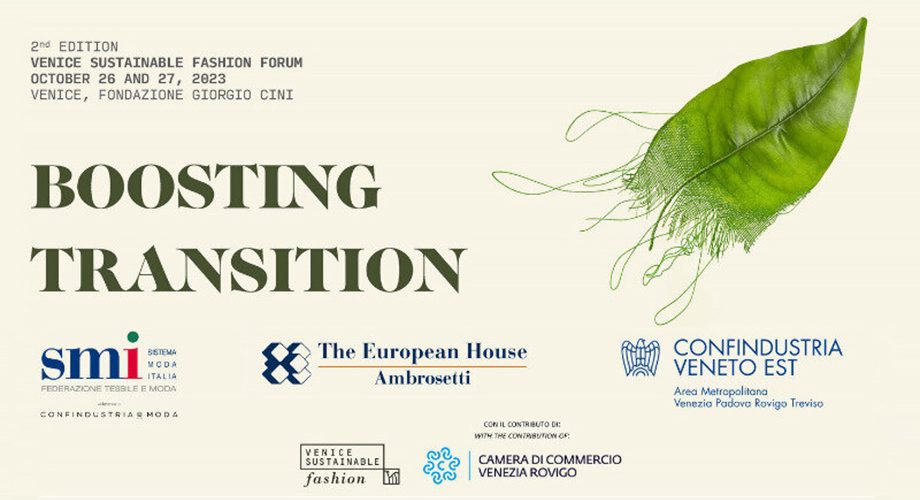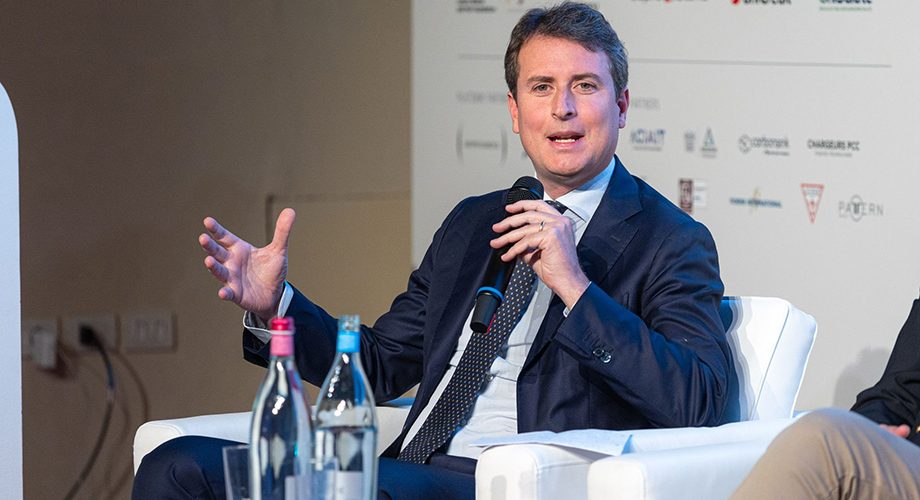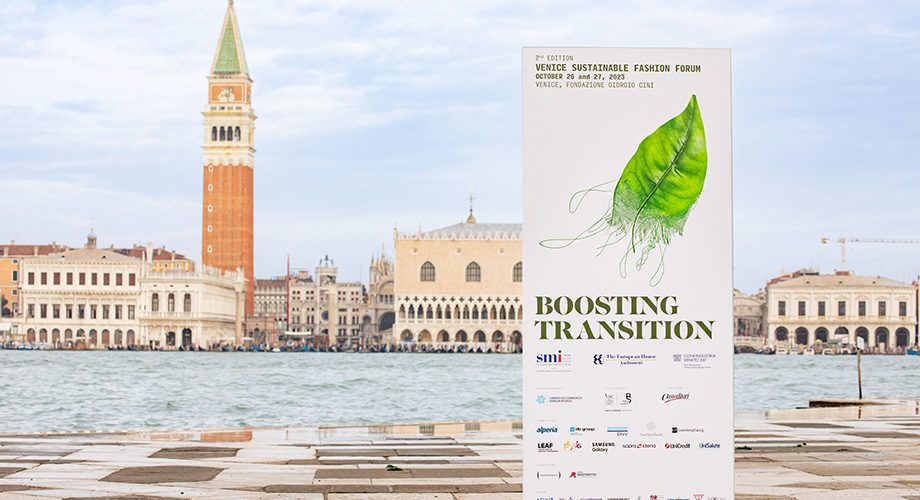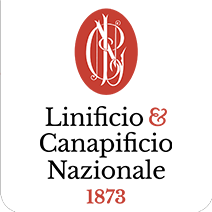
07 Nov 2023
SUSTAINABILITY
The second edition of the Venice Sustainable Fashion Forum, organised by Smi – Sistema Moda Italia, The European House Ambrosetti and Confindustria Veneto Est at the Giorgio Cini Foundation on 26th and 27th October 2023, brought together fashion industry leaders, governments, NGOs, experts and academics to address the challenges of social and environmental sustainability in the supply chain and outline a real action plan for the future.
Pierluigi Fusco Girard, CEO of Linificio e Canapificio Nazionale, shared the experience of the company, which is committed to seeking concrete solutions, such as the traceability of its yarns or the expansion into the non-textile world, with the ecological transition as a daily stimulus for useful researching work.

This edition of the forum, entitled Boosting Transition, emphasized the urgency of accelerating the ecological transition and highlighted eight key points to guide the fashion industry towards a sustainable transformation.
1. Anticipating market transition
To steer and channel corporate action towards the early adoption of voluntary and mandatory instruments that the EU is developing as a global leader on sustainability.
2. Set up government-led multi-stakeholder task forces
To act as facilitators of the transition, consult flexibly with key industry players, NGOs, sector experts, finance and academics and define a roadmap that supports ESG transformation and work towards goals consistent with national specificities.
3. Catalysing change
To promote alliances between all upstream and downstream actors in the fashion supply chain, together with the financial sector and other actors in the value chain, and thus disseminate good practices, also enabling legislators to make the best choices in the shortest possible time.
4. Measuring the impact of policies through a minimum data set for all
To assess the effectiveness of policies and regulatory actions by creating an up-to-date database based on a limited number of meaningful KPIs consistent with upcoming European and global compliance requirements.
5. Promoting positive cultural change
Harness the communication potential of positive messages and experiences (such as events, concerts, etc.) to engage consumers in cultural change and influence consumption habits by breaking down the barrier between sustainable purchasing intent and action.
6. Vanguard of sustainability led by Italian and French luxury value chains
Create, within the Quirinal Pact, a table that welcomes Italian and French industry leaders to make luxury not only a symbol of quality but also a front runner pointing the direction of fair fashion transition, playing a key role with European and international institutions.
7. Making corporate sustainability choices more profitable
Unlock and fully exploit the change potential of EU companies by promoting the development, dissemination, and large-scale adoption of green technologies across the fashion value chain, drawing inspiration from the positive experience of the US Inflation Reduction Act (IRA).
8. Integrated approach between recycling and reuse
Create virtuous synergies between recycling and reuse operators to effectively address the challenge of overproduction, promoting an appropriate improvement of the physical and intangible durability of eco-designed textiles while reducing multi-material garments.

The event demonstrated the industry’s commitment to address a clear and shared roadmap to achieve these goals. Collaboration between institutions, companies and organizations is crucial to the success of these initiatives. And Linificio e Canapificio Nazionale, which thanks to its people has been walking the road of sustainability for years, is ready to welcome the action points to shape a low impact future for the fashion industry right now.


